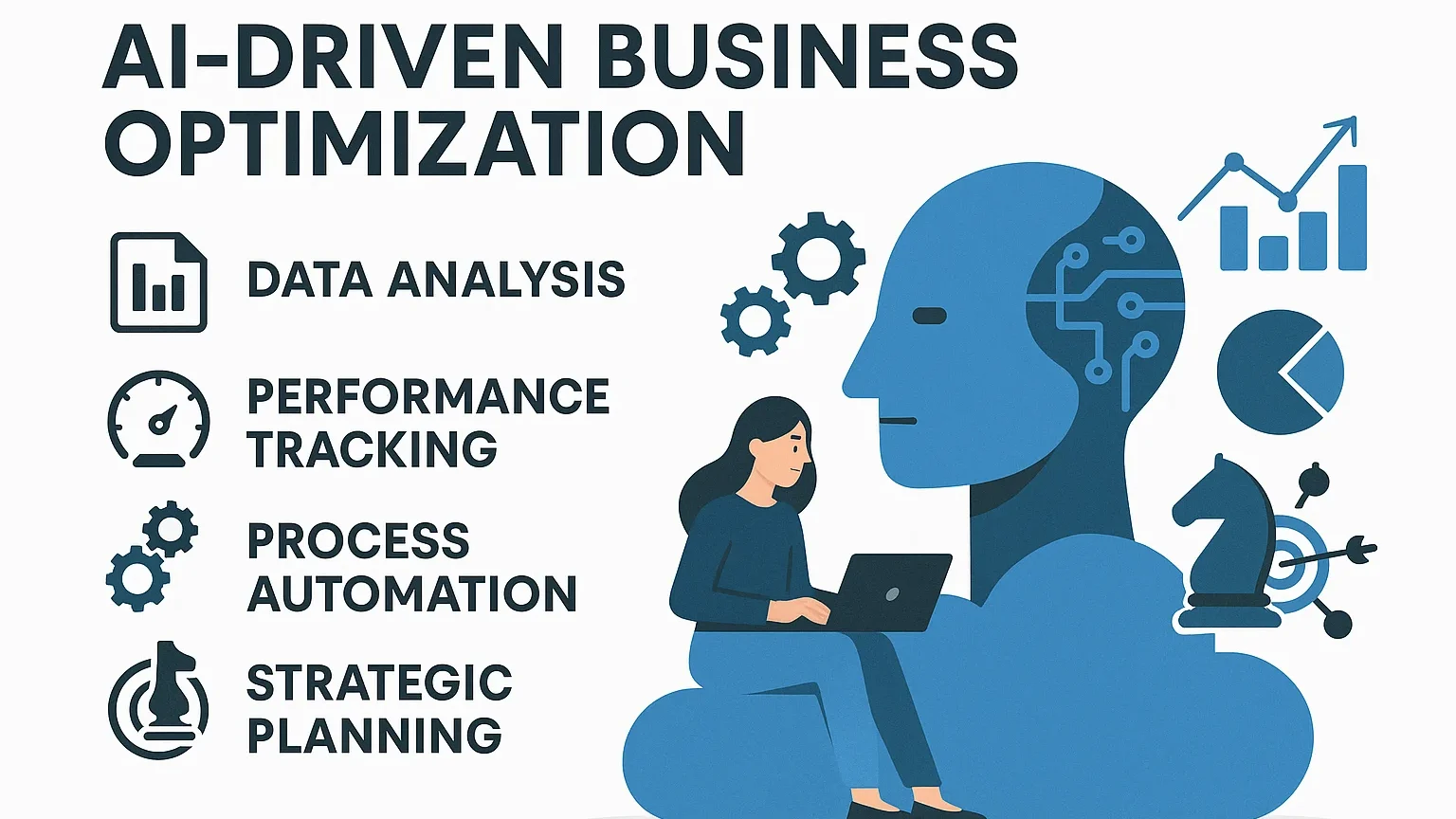As businesses navigate an increasingly digital landscape, artificial intelligence (AI) has emerged as a transformative force driving efficiency, innovation, and competitive advantage. According to McKinsey’s 2024 Global AI Survey, 72% of organizations have adopted AI in at least one business function, up from 55% in 2023, underscoring how rapidly AI is becoming an essential driver of modern business performance and strategic growth.
Leading this revolution is Grok AI, a cutting-edge platform that empowers enterprises to harness AI for more intelligent decision-making and automation.
Key Takeaways
- AI in business is revolutionizing operations, with 72% of organizations adopting it for various functions, showcasing its critical role in efficiency and growth.
- AI enhances customer experiences through personalization, real-time support, and recommendation engines, effectively boosting engagement and brand loyalty.
- Small and mid-sized businesses can now access affordable AI solutions, leveling the playing field against larger corporations.
- As AI changes job roles, companies must invest in workforce upskilling, focusing on new skills like data literacy and AI ethics for future success.
- Ethical AI use is essential, requiring transparency and accountability in algorithms to avoid bias and ensure fair decision-making.
Table of Contents
AI-Driven Business Optimization
From predictive analytics to process automation, AI is transforming the way companies operate. Machine learning algorithms analyze customer behavior, optimize supply chains, detect inefficiencies, and even forecast market trends with remarkable accuracy. By integrating AI-powered tools, businesses can reduce costs, minimize risks, improve agility, and unlock new revenue streams through smarter, data-driven strategies. AI also enhances scalability, enabling organizations to respond rapidly to shifting market demands and evolving customer expectations.

Enhancing Customer Experiences with AI
Personalization is no longer a luxury; it’s an expectation. AI enables hyper-targeted marketing, real-time customer support via chatbots, and dynamic pricing strategies tailored to individual preferences and behaviors. Natural language processing (NLP) tools can even gauge sentiment from customer interactions, enabling brands to refine their messaging and foster stronger, more meaningful relationships. Additionally, AI-driven recommendation engines deliver curated content, products, and offers, enhancing engagement and boosting customer lifetime value.
These intelligent personalization strategies not only improve user satisfaction but also increase conversion rates and foster brand loyalty across digital channels, thereby providing businesses with a significant competitive advantage in the marketplace.
Please let me know if you’d like it to be made more concise or adapted for a specific platform, such as a website or a pitch deck.
The Rise of AI in Cybersecurity
As cyber threats become increasingly sophisticated, AI is emerging as a critical defense mechanism. Advanced anomaly detection systems can identify breaches before they escalate, while automated response protocols mitigate damage in real time. For tech-driven enterprises, AI isn’t just an advantage; it’s a necessity.

Democratizing AI for SMBs
While large corporations have long leveraged AI, small and mid-sized businesses (SMBs) now have access to scalable, cost-effective solutions. Cloud-based AI platforms level the playing field, allowing SMBs to compete with industry giants without massive infrastructure investments. These platforms offer intuitive interfaces, pre-built models, and integration capabilities that reduce deployment complexity. SMBs can now automate routine tasks, gain actionable insights from data, and personalize customer experiences with minimal technical overhead.
By embracing AI through the cloud, smaller businesses can innovate more quickly, leverage Artificial Intelligence Ticket Systems to enhance operational efficiency, and respond more effectively to market demands, all while maintaining agility and controlling costs.
AI and the Future of Work
AI isn’t just transforming processes, it’s redefining roles. Intelligent systems can augment human capabilities, automate repetitive tasks, and free up employees to focus on high-value, strategic initiatives. This shift is creating demand for new skills, such as data literacy, AI ethics, and cross-functional collaboration. Companies investing in workforce upskilling will be better positioned to thrive in the AI era.

Ethical and Responsible AI Use
As AI becomes increasingly embedded in business operations, ethical considerations become increasingly important. Transparency, fairness, and accountability must be at the core of AI implementation. However, businesses must ensure that their algorithms are free from bias and that their decision-making processes are transparent and explainable.
Industry-Specific Innovations
AI is not a one-size-fits-all solution. From healthcare diagnostics to fintech fraud detection and smart manufacturing, tailored AI solutions are driving specialized innovations. With modular architectures offered by platforms, for example, Grok AI, IBM Watson, and Microsoft Azure AI, organizations can deploy. Industry-specific data, compliance requirements, and operational nuances demand flexible, adaptive systems. Whether optimizing clinical workflows, enhancing financial risk models, or improving production line efficiency, these sector-focused AI deployments empower businesses to unlock measurable value and long-term strategic growth.
Data: The Fuel for AI
AI’s effectiveness hinges on access to quality data. Organizations must invest in robust data infrastructure, ensure data privacy compliance (e.g., GDPR, CCPA), and adopt strategies for secure, real-time data collection and integration to maintain data integrity and ensure compliance. The synergy between data and AI powers innovation and enables accurate decision-making.
Embracing the AI-Powered Future
Hence, the integration of AI into business and technology is no longer optional; it’s imperative for survival in the digital age. As organizations worldwide adopt intelligent automation, platforms like Grok AI are paving the way for a brighter, more efficient future.
By embracing AI responsibly, businesses can unlock unprecedented opportunities while staying ahead of the curve. The question isn’t whether to adopt AI, but instead how quickly you can implement it before your competitors do.










